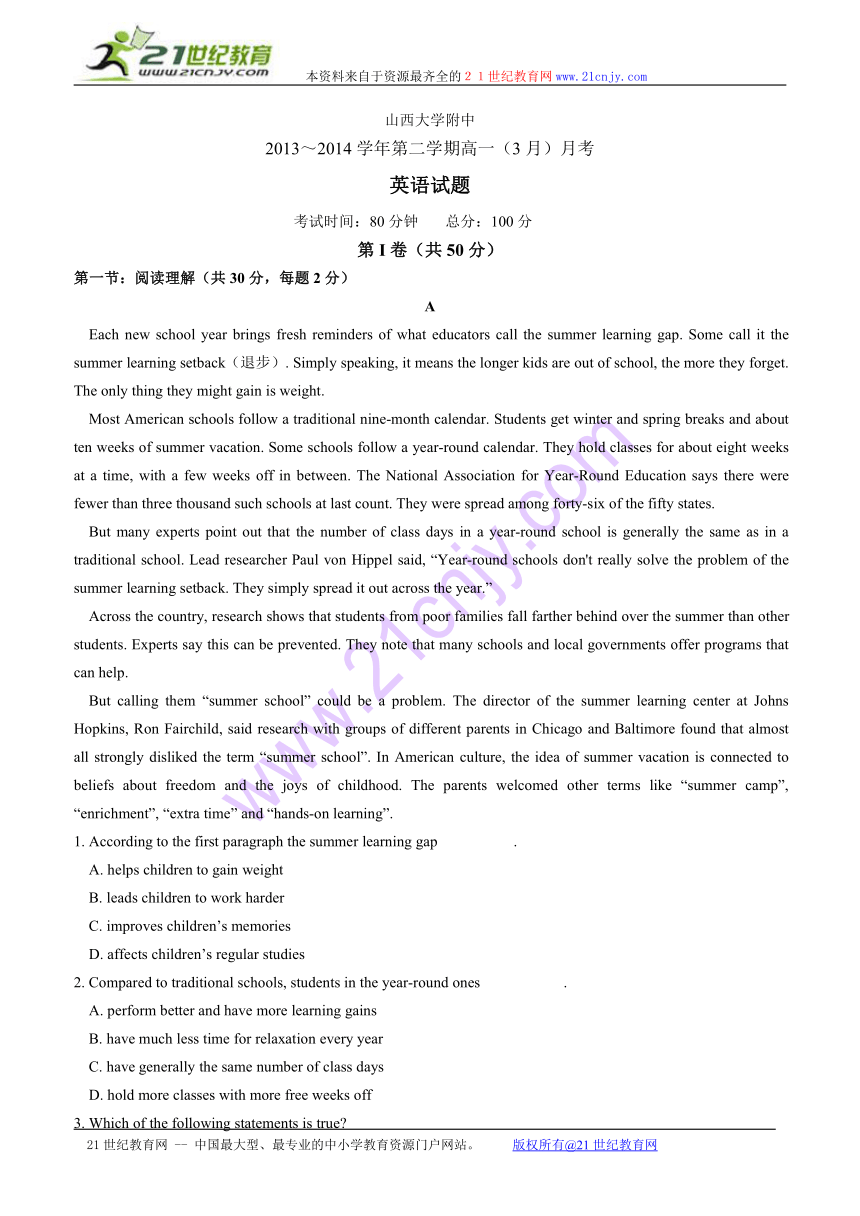
本资料来自于资源最齐全的21世纪教育网www.21cnjy.com 山西大学附中 2013~2014学年第二学期高一(3月)月考 英语试题 考试时间:80分钟 总分:100分 第I卷(共50分) 第一节:阅读理解(共30分,每题2分) A Each new school year brings fresh reminders of what educators call the summer learning gap. Some call it the summer learning setback(退步). Simply speaking, it means the longer kids are out of school, the more they forget. The only thing they might gain is weight. Most American schools follow a traditional nine-month calendar. Students get winter and spring breaks and about ten weeks of summer vacation. Some schools follow a year-round calendar. They hold classes for about eight weeks at a time, with a few weeks off in between. The National Association for Year-Round Education says there were fewer than three thousand such schools at last count. They were spread among forty-six of the fifty states. But many experts point out that the number of class days in a year-round school is generally the same as in a traditional school. Lead researcher Paul von Hippel said, “Year-round schools don't really solve the problem of the summer learning setback. They simply spread it out across the year.” Across the country, research shows that students from poor families fall farther behind over the summer than other students. Experts say this can be prevented. They note that many schools and local governments offer programs that can help. But calling them “summer school” could be a problem. The director of the summer learning center at Johns Hopkins, Ron Fairchild, said research with groups of different parents in Chicago and Baltimore found that almost all strongly disliked the term “summer school”. In American culture, the idea of summer vacation is connected to beliefs about freedom and the joys of childhood. The parents welcomed other terms like “summer camp”, “enrichment”, “extra time” and “hands-on learning”. 1. According to the first paragraph the summer learning gap . A. helps children to gain weight B. leads children to work harder C. improves children’s memories D. affects children’s regular studies 2. Compared to traditional schools, students in the year-round ones . A. perform better and have more learning gains B. have much less time for relaxation every year C. have generally the same number of class days D. hold more classes with more free weeks off 3. Which of the following statements is true A. Students from poor families often fall behind after the vacation. B. Year-round schools can solve the problem of the learning gap. C. There are schools in each state following a year-round calendar. D. Nothing can help the students who fall behind after the vacation. 4. Why did almost all parents dislike the term “summer school” A. They cherish the children’s rights of freedom very much. B. They are worried about the quality of the “summer school”. C. They want their children to be forced to make up the gap. D. They can’t afford the furthe ... ...
~~ 您好,已阅读到文档的结尾了 ~~

